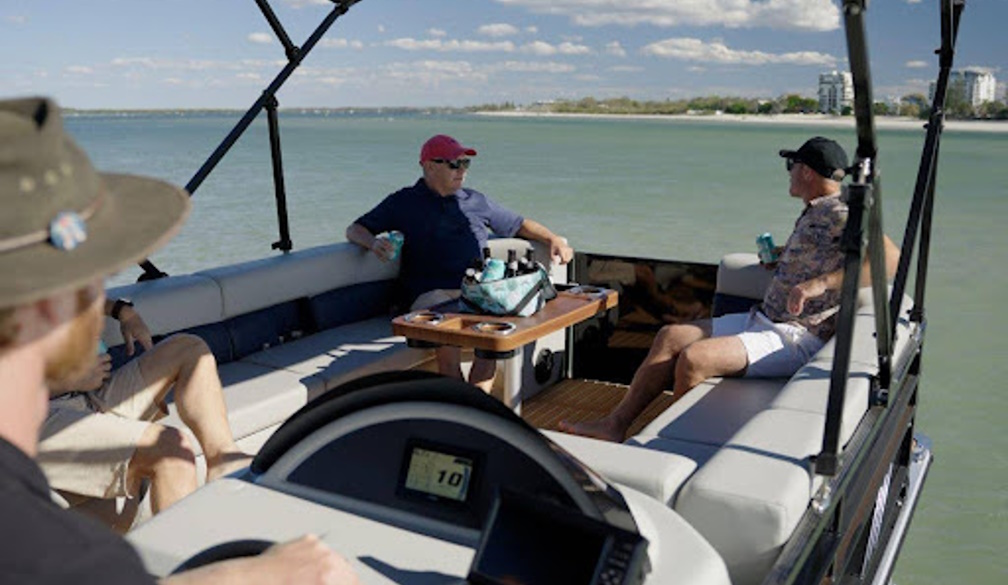No, the West is not to blame for Russia’s war in Ukraine. Why this myth – and others – are so difficult to dispel
- Written by Peter Tesch, Visiting Fellow at the ANU Centre for European Studies, Australian National University
It is no surprise the second anniversary of Russian President Vladimir Putin’s war against Ukraine generated so much commentary. What is surprising, though, is that Kremlin propaganda remains so prevalent in what purports to be analysis.
This week, the ABC was forced to defend a documentary it aired on the conflict, which quoted Russian soldiers justifying the country’s invasion. Ukraine’s ambassador to Australia said it repeated “blatant lies” coming from the Kremlin.
But this is not the only example. Among the other Russian assertions frequently repeated by commentators are that the West is at fault for the war and the root cause lies in “NATO expansion”. Proponents of this line recycle the tired narrative that the West does not understand Russia’s world view and has failed to accommodate its “legitimate security interests”.
Another persistent line is that the West’s failure to understand Russia’s thinking is to blame for the tensions that have marked relations between the two sides for the past 20 years.
On the contrary, Putin has been clear he is intent on recovering Russia’s “historic lands” in his war with Ukraine, in the process wantonly breaching security guarantees Moscow had given Kyiv twice in the 1990s.
There is no misunderstanding Putin’s threat-infused nostalgia for “the legacy of the Yalta and Potsdam conferences” of 1945, either. This was when the US, UK and Soviet Union carved up the territories of the vanquished following the second world war and demarcated their respective spheres of influence, denying tens of millions of people any say in their own future.
Accusing the West of sowing democracy on Russia’s doorstep today ignores the reality that, freed from 50 years of Moscow’s repressive domination, the countries of eastern Europe unequivocally saw their future security and prosperity as part of the European Union and NATO.
Read more: Putin is on a personal mission to rewrite Cold War history, making the risks in Ukraine far graver
While they have been understandably silent on the matter since February 2022, some of Russia’s leading foreign and defence policy thinkers – none of them Kremlin opponents – previously dismissed the idea that “NATO expansion” represented a threat to Russian security.
Defence analyst Alexander Khramchikhin argued in the authoritative Military Industrial Courier in October 2021 that claims NATO was preparing to attack Russia were “shameful”. If NATO was preparing for war with Russia, he added, it was doing so defensively.
Similarly, Andrei Kortunov, formerly the influential head of the Russian International Affairs Council, argued on the now-shuttered Carnegie Moscow office website in January 2021,
former Soviet republics have been desperately storming the gates of the Euro-Atlantic security structures, and the West, fully aware that accepting these new member states would weaken NATO, not strengthen it, had to respond to this pressure.
Putin’s own policies have also substantially worsened Russia’s strategic circumstances, not least by driving Finland and Sweden to pursue NATO membership. Moreover, NATO’s recent policies (including generally declining military expenditure from 1990–2014) in no way pointed to hostile intent towards Russia.
Putin’s war aims were not limited
In a similar vein, some believe Putin’s aims in Ukraine are limited to securing disarmament and neutrality, as well as a special status for Crimea and the eastern region of Donbas. Advocates of this line implicitly condone Putin’s use of military force to unilaterally recast post-second world war borders.
It is clear serious planning and intelligence failures misled Putin and his narrow cohort of advisers into thinking Ukraine would fold in days. A history autodidact, Putin presumably had no interest in occupying western Ukraine, knowing this traditionally had been Catholic Polish and Lithuanian territory and never part of the Orthodox Slavic lands of Great Russia.
We can reasonably surmise Putin’s goal was the swift capture of Kyiv, the political or physical elimination of President Volodymyr Zelensky, and the occupation of Ukraine east of the Dnipro River (and potentially the Black Sea coastline, including Odesa, founded by Putin’s heroine, Catherine the Great).
Thus, Putin would replicate the “gathering of the lands” of one of his distant predecessors, Tsar Ivan III, and consign what was left of western Ukraine to the eternal financial responsibility of Europe.
The revised map of Ukraine that former Russian President Dmitry Medvedev introduced on state television earlier this month makes clear this intent.
Confident assertions, whether by the Kremlin or outside analysts, that Russia’s economy has withstood Western sanctions are also premature.
Sanctions work over the long term, and Russia’s much-touted growth rates mainly reflect its increased investment in the military and defence sectors. Credible commentators believe Russia’s economy shows clear signs of overheating. Only time will tell.
What is true, though, is some countries are conniving with Russia to exploit loopholes and circumvent sanctions. Furthermore, many analysts are silent on the fact that Russia – a permanent member of the UN Security Council – is flouting the very sanctions it helped impose on North Korea by sourcing weapons and military material from Pyongyang.
Aiding Ukraine is not a distraction
Another myth being propagated in the West is the contention that aiding Ukraine diminishes US capacity to deter China in the Indo-Pacific.
It is not a zero-sum game. It is hard to see how unsettling allies and partners by dumping democracies – including one fighting for the very principles upon which the US was founded – would be a deterrent to China.
Read more: Ukraine war: what China gains from acting as peacemaker
Neither Russia nor China has allies as we understand the term. Both see alliances as directed against someone or something, rather than being mutually reinforcing arrangements underpinned by common beliefs and values.
Both Putin and Chinese President Xi Jinping seek to undermine confidence in US leadership and commitment through falsehoods and propaganda. We must be vigilant and forthrightly contest these efforts, regardless of the competing demands on governments and the distractions of our often fractious democracies.
Authors: Peter Tesch, Visiting Fellow at the ANU Centre for European Studies, Australian National University



















